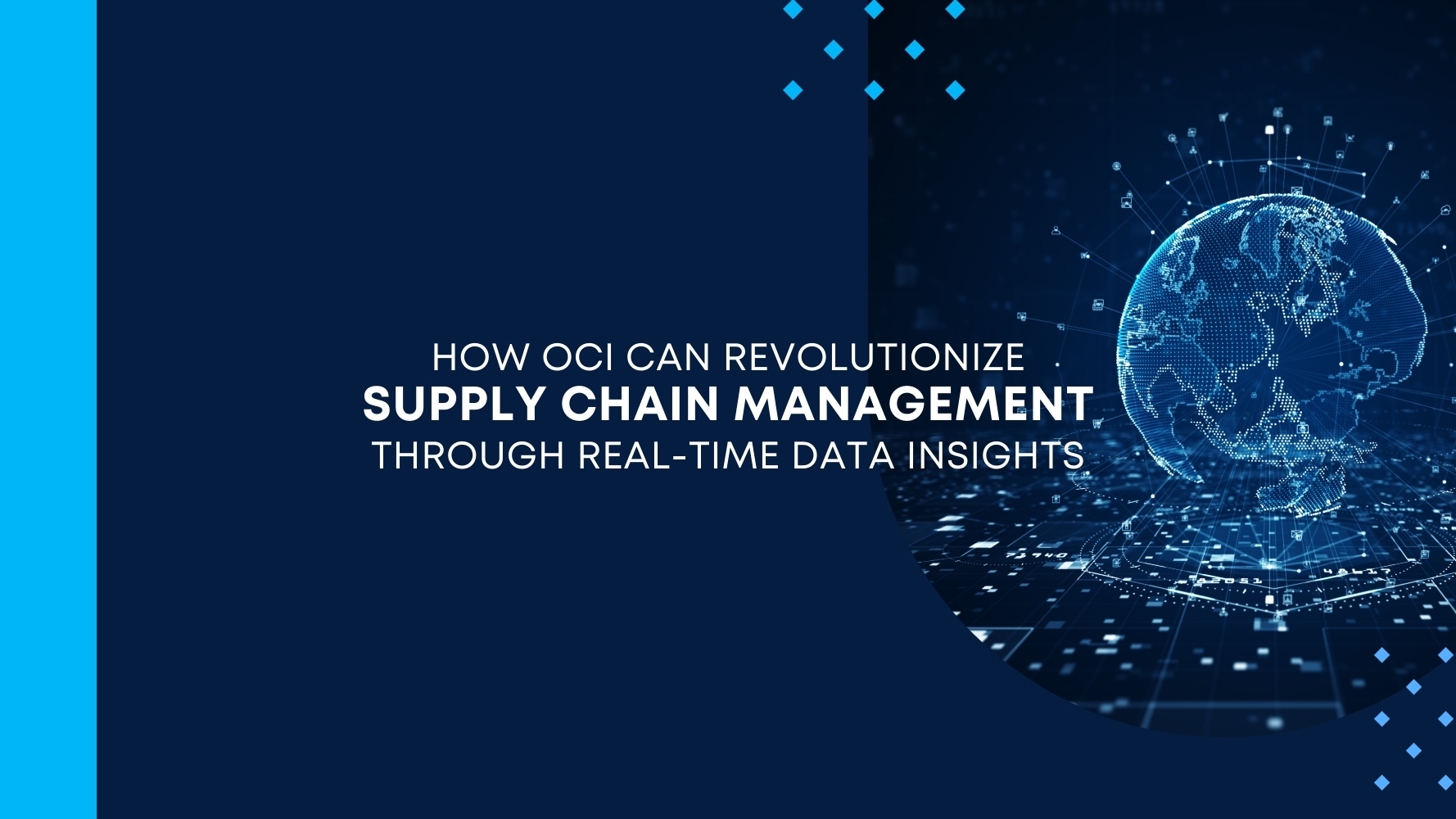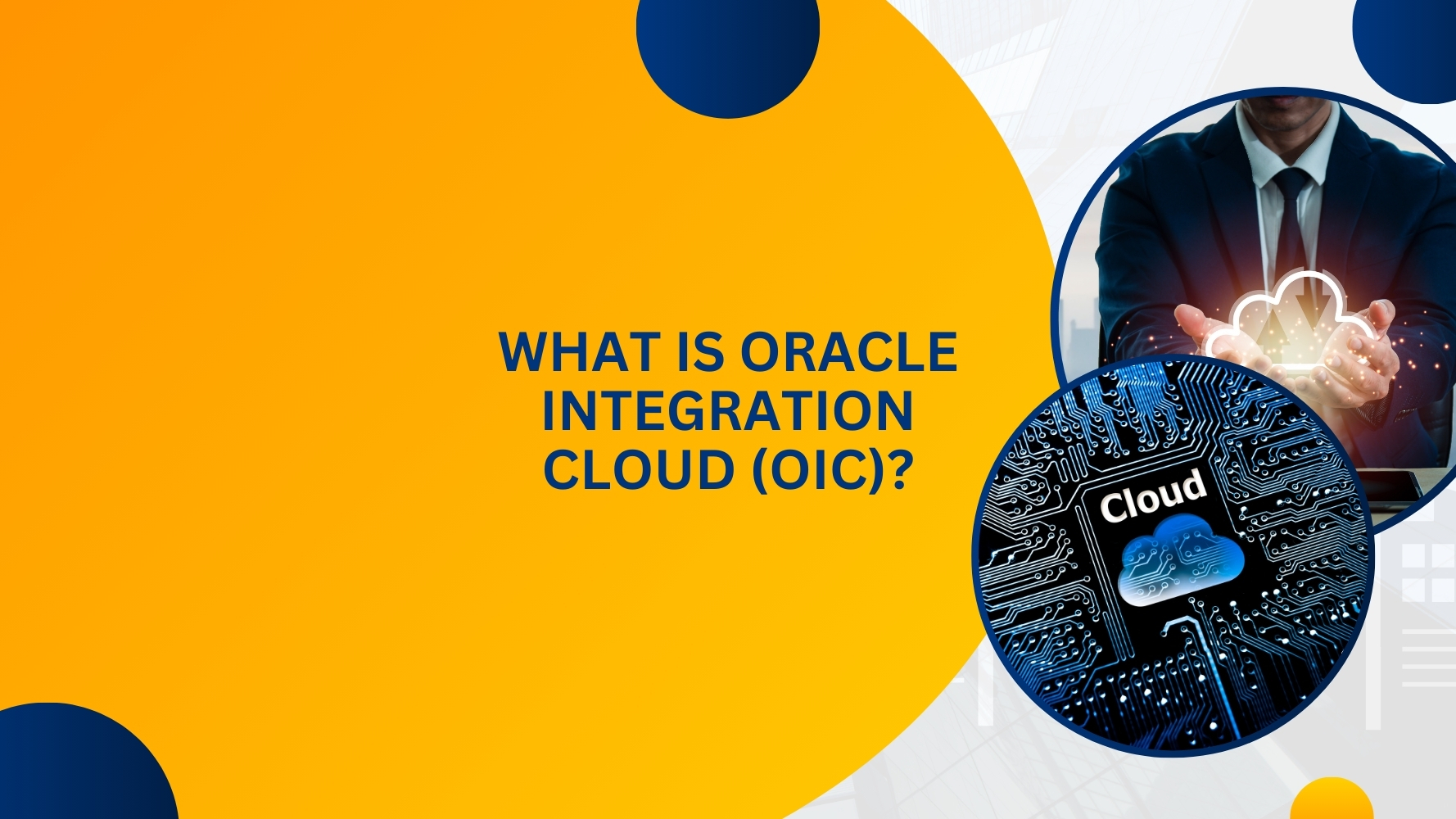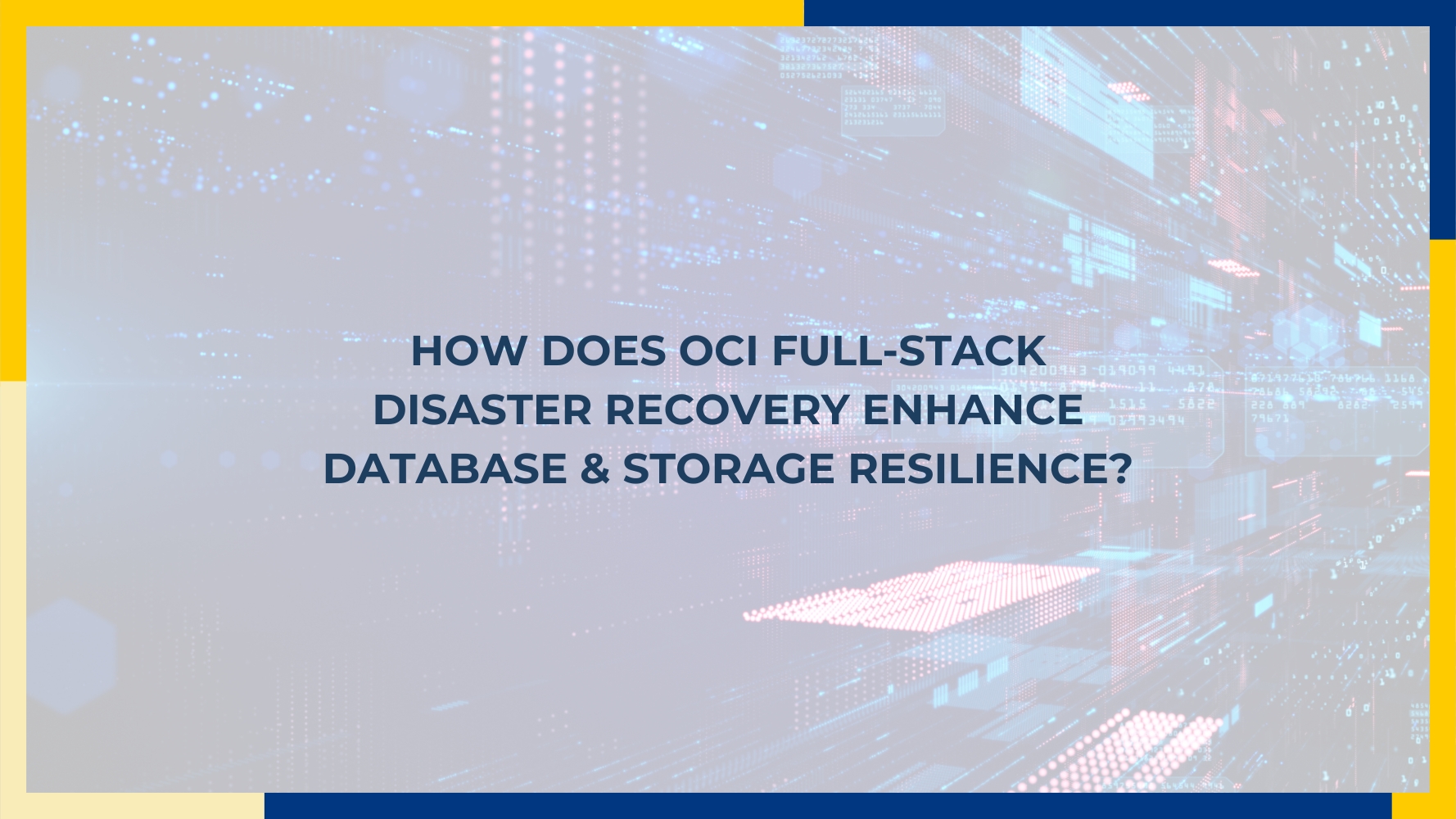Effective supply chain management (SCM) is crucial for success in today’s dynamic and competitive business environment. The ability to make informed, timely decisions can mean the difference between leading the market or falling behind. Enter Oracle Cloud Infrastructure (OCI), a powerful suite of cloud services designed to provide real-time data insights that revolutionize supply chain management. Let’s explore through this blog how OCI, along with Oracle Cloud Applications, Oracle Fusion Cloud, and other Oracle Integrated Cloud solutions, can transform your supply chain operations.
The Importance of Real-Time Data in Supply Chain Management
Supply chain management encompasses the planning and execution of all processes involved in the sourcing, production, and delivery of products. Traditionally, these processes were managed with periodic data updates, often leading to delays and inefficiencies. In contrast, real-time data enables instant access to critical information, allowing businesses to respond swiftly to market changes, manage risks effectively, and optimize operational efficiency.
Oracle Cloud Infrastructure: The Backbone of Real-Time Insights
-
High Performance and Scalability
Oracle Cloud Infrastructure is built to handle massive volumes of data with high performance and scalability. It not only allows businesses to process and analyze data in real time but also prioritizes data security. OCI’s robust infrastructure supports advanced analytics, machine learning, and AI applications, which are essential for extracting actionable insights from complex data sets, while ensuring the confidentiality and integrity of your data.
-
Integrated Cloud Solutions
OCI integrates seamlessly with Oracle Cloud Applications and Oracle Fusion Cloud, providing a comprehensive platform for managing all aspects of the supply chain. This integration ensures data flows smoothly across different procurement, inventory management, logistics, and customer service functions. Oracle’s Integrated Cloud approach eliminates data silos, enabling a unified view of the entire supply chain.
-
Oracle Cloud Applications
Oracle Cloud Applications, including Oracle Supply Chain Management (SCM) Cloud, offers a suite of tools designed to optimise supply chain operations. These applications leverage the power of OCI to provide real-time visibility and insights. Key features include demand planning, supply planning, order management, and logistics, all powered by real-time data analytics.
Key Benefits of OCI for Supply Chain Management
1. Enhanced Visibility and Transparency
With OCI, supply chain managers gain real-time visibility into every aspect of the supply chain. This transparency allows for better inventory levels, shipment statuses, and production schedules tracking. Managers can monitor key performance indicators (KPIs) and detect issues as they arise, enabling prompt corrective actions.
2. Improved Demand Forecasting
Accurate demand forecasting is essential for maintaining optimal inventory levels and meeting customer expectations. OCI‘s advanced analytics and machine learning capabilities enable precise demand forecasting by analyzing historical data, market trends, and other relevant factors. This helps businesses reduce stockouts and overstock situations, improving overall efficiency and customer satisfaction.
3. Optimized Inventory Management
Effective inventory management is critical for minimizing costs and maximizing profitability. OCI allows for real-time tracking of inventory levels across multiple locations. By integrating with Oracle Cloud Applications, businesses can automate reorder processes, optimize stock levels, and reduce carrying costs. Real-time insights into inventory movements ensure that the right products are available at the right time.
4. Streamlined Logistics and Transportation
Logistics and transportation are often the most challenging aspects of supply chain management. OCI provides real-time data on shipment statuses, delivery routes, and carrier performance. This information enables businesses to optimize transportation routes, reduce transit times, and improve delivery reliability. Additionally, real-time tracking of shipments enhances customer service by providing accurate delivery updates.
5. Enhanced Supplier Collaboration
Collaboration with suppliers is vital for a smooth supply chain operation. OCI facilitates real-time communication and data sharing with suppliers, ensuring everyone is on the same page. Oracle Fusion Cloud’s supplier management features enable businesses to manage supplier relationships, track performance, and ensure compliance with contractual agreements. Real-time insights into supplier performance help identify potential issues and mitigate risks.
6. Risk Management and Mitigation
Supply chains are exposed to various risks, including natural disasters, political instability, and market fluctuations. OCI’s real-time data analytics help identify and assess these risks promptly. Businesses can develop contingency plans and take proactive measures to mitigate the impact of potential disruptions. By leveraging Oracle Integrated Cloud solutions, companies can build resilient supply chains capable of withstanding unforeseen challenges.
7. Enhanced Decision-Making
Real-time data insights empower supply chain managers to make informed decisions quickly. With accurate, up-to-date information, managers can evaluate different scenarios, weigh the pros and cons, and choose the best course of action. Oracle Cloud Applications provide intuitive dashboards and visualization tools, making it easier to interpret complex data and derive actionable insights.
Implementing OCI: Best Practices
1. Define Clear Objectives
Before implementing OCI, you must define clear objectives for your supply chain management. Identify the specific areas where real-time data insights can provide the most value, such as inventory management, demand forecasting, or logistics optimization.
2. Ensure Data Quality
High-quality data is crucial for accurate insights. Ensure that your data is clean, accurate, and up-to-date. Implement data governance practices to maintain data quality across the supply chain.
3. Leverage Advanced Analytics
Utilize OCI’s advanced analytics and machine learning capabilities to extract meaningful insights from your data. Invest in training your team to use these tools effectively and interpret the results accurately.
4. Foster Collaboration
Encourage collaboration between different departments and external partners such as suppliers and logistics providers. Real-time data sharing and communication are vital for a cohesive and responsive supply chain.
5. Monitor and Adapt
Continuously monitor the performance of your supply chain and adapt your strategies based on real-time insights. Use Oracle Cloud Applications’ dashboards and reporting tools to track KPIs and identify areas for improvement.
Conclusion
Oracle Cloud Infrastructure, combined with Oracle Cloud Applications and Oracle Fusion Cloud, offers a powerful platform for revolutionizing supply chain management. By leveraging real-time data insights, businesses can enhance visibility, improve demand forecasting, optimize inventory management, streamline logistics, and mitigate risks. Implementing OCI can lead to significant cost savings, improved efficiency, and increased customer satisfaction. As supply chains become increasingly complex, the ability to access and act on real-time data will be a key differentiator for businesses aiming to stay competitive in the global market.
Ready to Transform Your Supply Chain with Oracle Cloud Infrastructure?
Discover how Tangenz, your trusted Oracle Implementation Partner, can help streamline your supply chain operations and unlock the full potential of Oracle Cloud Infrastructure. Whether you’re looking to enhance visibility, optimize inventory management, or improve logistics efficiency, our OCI experts at Tangenz are here to guide you every step of the way.
Contact us today at www.tangenz.com to schedule a consultation and learn more about our tailored Oracle Cloud solutions.







